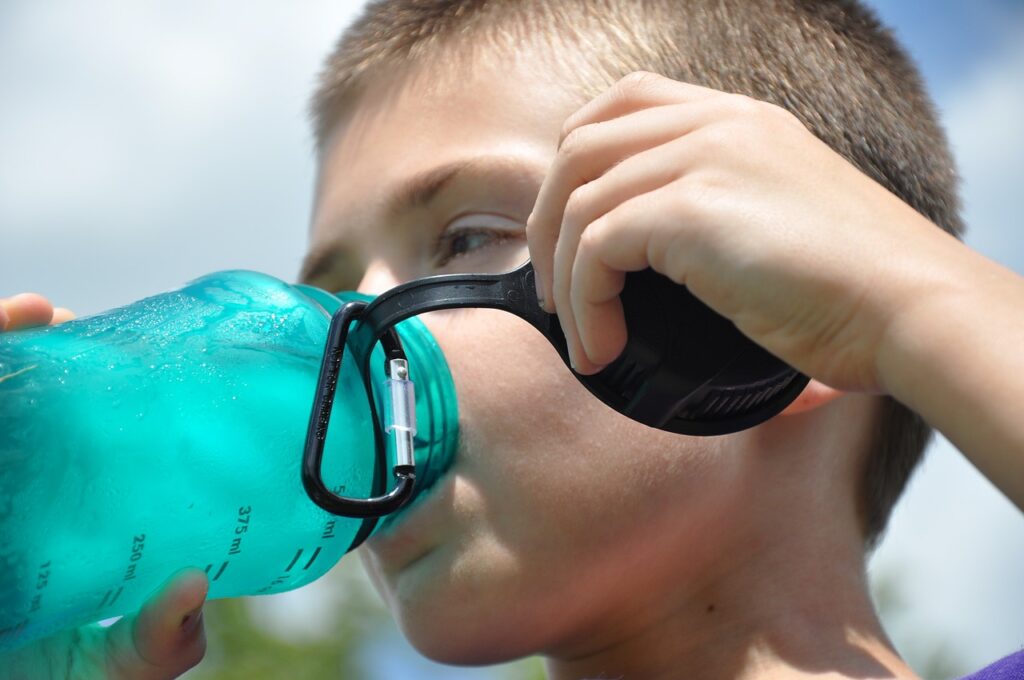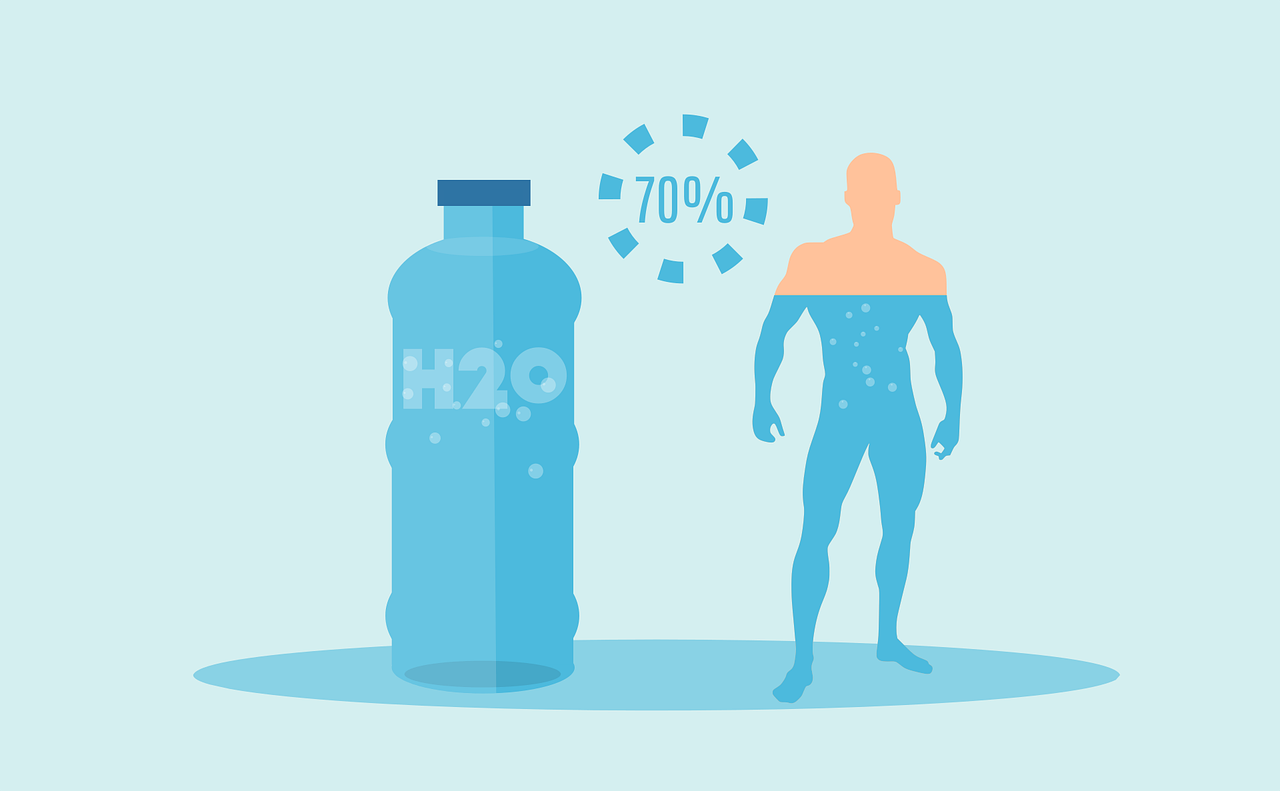Alright, let’s imagine we’re sitting down for a chat, maybe even with a glass of water in hand. You see, water, it’s not just something we drink when we’re thirsty, it’s actually an incredibly important part of who we are and how our bodies work.
Now, I want you to think about your favorite swimming pool. Got it in your mind? Okay, good. Now imagine that your body is a bit like that swimming pool, but instead of being full of water to swim in, it’s full of water that helps you do all the things you love to do each day – run, jump, think, even just breathe! In fact, up to 60% of your body is made up of water. That’s more than half!
Water is kind of like a super helper in our bodies. It helps carry nutrients from the food we eat to all the different parts of our body, from our brain all the way down to our toes. It helps us get rid of waste, like when we sweat and go to the bathroom. It also helps to keep our temperature just right, not too hot, not too cold.
When we drink enough water, our bodies work really well. Our muscles and joints feel good, so we can move around easily. Our brains work better too, so we can think clearly, concentrate on our homework, and even feel happier. Water even helps to keep our skin looking nice and fresh, like after a good night’s sleep.
Remember, each glass of water we drink is like saying a big thank you to our bodies for all the amazing things they do for us every single day.
How Drinking Water Improves Health
Impact on Physical performance
Water is integral for optimal physical performance and it acts in several ways to support your body during physical activities.
Firstly, water plays a critical role in maintaining volume of blood in your body. This is crucial as blood carries oxygen and essential nutrients to your muscles. If you’re dehydrated, blood volume can drop, leading to a decrease in the supply of oxygen to your muscles.
Hydration also impacts the balance of electrolytes in your body. Electrolytes are minerals such as sodium, potassium, and magnesium that carry electrical signals across cells. These signals direct muscle contractions and heart function, both of which are incredibly important during physical activities. Lack of hydration can disrupt this balance and impair muscle function and coordination.
Additionally, water acts as a lubricant for your joints. The cartilage that cushions joints such as knees and elbows contains a high proportion of water. Dehydration can reduce this cushioning effect, potentially causing discomfort or exacerbating injuries during physical activities.
Improves your mood and brain functionality
Water plays a crucial role in maintaining optimal brain function and mood. Proper hydration is essential for cognitive abilities such as concentration, alertness, short-term memory, and critical thinking. Additionally, staying hydrated is linked to improved mood, reduced fatigue, and lower stress levels. Dehydration, on the other hand, can trigger headaches and migraines, and potentially impact brain structure and function if persistent. Hence, regular and adequate water intake is a simple yet significant strategy for supporting overall brain health and mental wellbeing.

The Impact of Hydration on Longevity
Hydration has a profound impact on longevity, affecting both direct and indirect pathways to influence lifespan.
Direct Impacts: A number of studies in humans have suggested a link between adequate hydration and longevity. For example, a study published in the Journal of the American College of Nutrition found a lower risk of mortality among men and women who consumed a greater amount of water.
Indirect Impacts: Staying hydrated supports overall health by promoting optimal function of the heart, kidneys, and other vital organs. It helps in maintaining a healthy weight, reducing the risk of chronic diseases like diabetes and cardiovascular disease, which are known to affect lifespan. Hydration also supports cognitive function, potentially reducing the risk of neurodegenerative disorders like Alzheimer’s disease, which can also influence longevity.
Turning to the animal kingdom, while there is a dearth of specific research on cats and water fountains extending their lifespan, hydration is recognized as a key component of feline health. Cats are notoriously poor drinkers and can often become dehydrated, especially if they consume a dry food diet. Dehydration in cats can lead to urinary tract diseases and kidney issues, which are leading causes of morbidity in older cats.
Therefore, by encouraging more frequent drinking, cat water fountains could potentially help cats stay hydrated, reduce the risk of these conditions, and indirectly contribute to a longer, healthier life.
To summarize, while more research is needed to strengthen the link between hydration and longevity, current evidence suggests that staying adequately hydrated contributes to overall health, disease prevention, and potentially, an extended lifespan. It’s a simple yet effective strategy that’s applicable across species.
Conclusion
Water is integral to our health, influencing everything from physical performance and cognitive function to overall longevity. It helps regulate body functions, supports muscle and joint health, aids cognitive abilities, and enhances mood. Studies suggest that maintaining optimal hydration can reduce the risk of chronic diseases and potentially extend lifespan. This principle applies not only to humans but also to pets, with adequate hydration strategies potentially contributing to a healthier, longer life. Thus, water isn’t merely a thirst quencher—it’s a fundamental component of our health and well-being.
